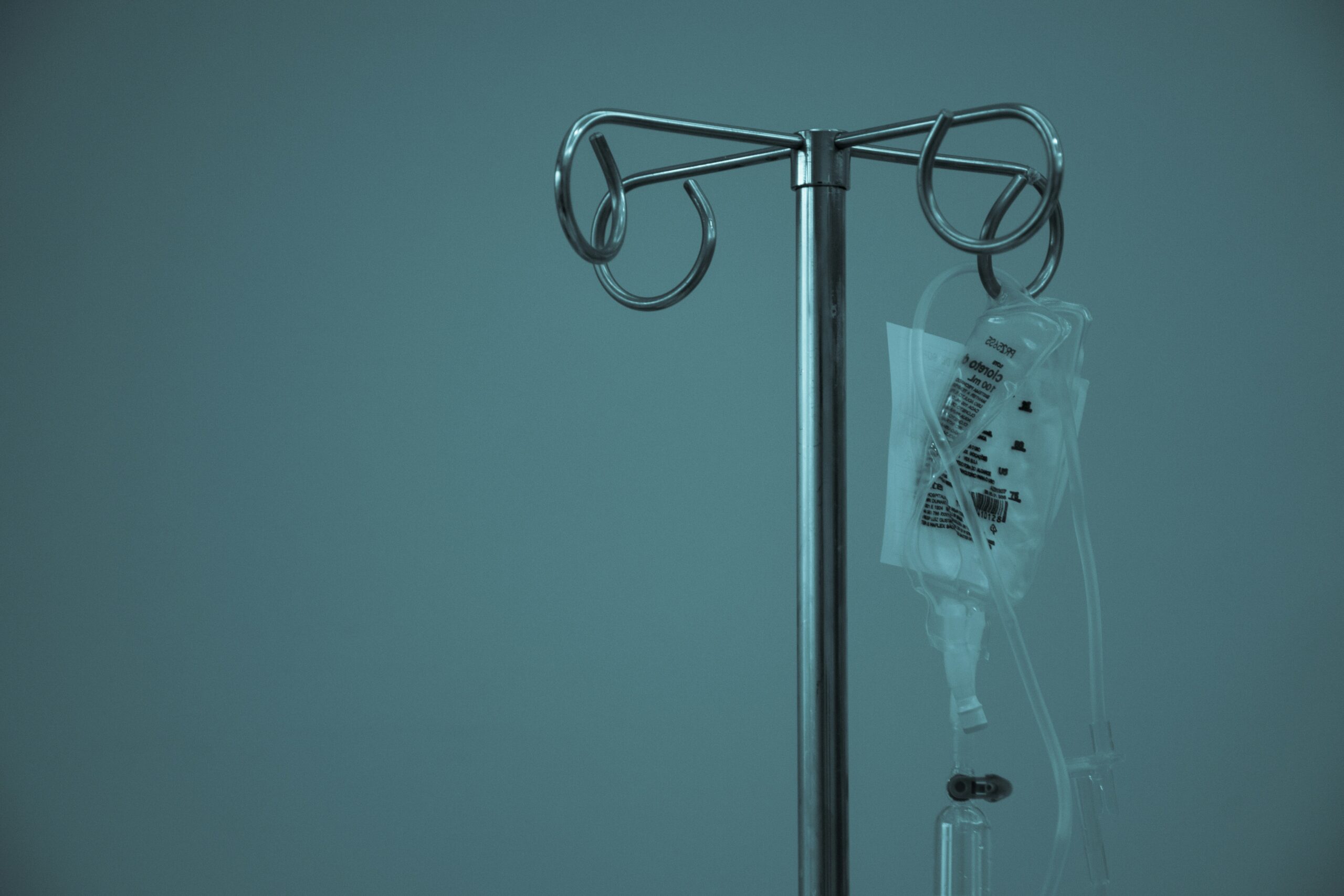Have you ever wondered if a urinary tract infection (UTI) could be the cause of a swollen prostate? It's a common concern for many men, but the answer might surprise you. While UTIs primarily affect the bladder and urethra, they can occasionally spread to the prostate gland, leading to swelling and discomfort. In this article, we'll explore the connection between UTIs and swollen prostates, discussing the symptoms, potential complications, and available treatment options. So, if you're experiencing urinary issues and suspect a UTI or swollen prostate, keep reading to learn more about this possible link and what you can do to find relief.

Understanding Urinary Tract Infection
Definition and characteristics of Urinary Tract Infection (UTI)
A Urinary Tract Infection (UTI) refers to an infection that affects any part of the urinary system, including the kidneys, bladder, ureters, and urethra. It occurs when bacteria, usually from the digestive tract, enter the urinary system through the urethra. UTIs can affect both men and women, but they are more common in women.
The most common type of UTI is a bladder infection, also known as cystitis. This infection occurs when bacteria reach the bladder and multiply, causing irritation and inflammation. If left untreated, the infection can spread to the kidneys and lead to a more serious condition called pyelonephritis.
Common symptoms of UTI
UTIs can cause a variety of symptoms, including a frequent urge to urinate, a burning sensation during urination, cloudy or strong-smelling urine, and pelvic pain. Some individuals may experience lower abdominal discomfort or even blood in their urine.
It is important to seek medical attention if you suspect you may have a UTI. A healthcare provider can perform tests to confirm the presence of bacteria in your urine and prescribe appropriate treatment.
Potential causes and risk factors
Urinary Tract Infections can be caused by various factors. Some common causes include improper hygiene practices, sexual activity, holding urine for too long, a weakened immune system, and the use of certain contraceptive methods such as diaphragms or spermicides.
Several risk factors can increase the likelihood of developing a UTI. These include being female, having diabetes, urinary tract abnormalities, a history of UTIs, and advanced age. It is crucial to be aware of these risk factors in order to take necessary precautions and seek prompt treatment if needed.
Understanding Prostatic Swelling
Definition and characteristics of prostatic swelling
Prostatic swelling, also known as benign prostatic hyperplasia (BPH), occurs when the prostate gland enlarges. The prostate is a small gland located just below the bladder in men. It plays a vital role in the urinary system by producing semen, the fluid that carries sperm during ejaculation.
As men age, the prostate gland naturally grows larger. However, in some individuals, this growth can become excessive, leading to prostatic swelling. This condition is non-cancerous but can cause bothersome urinary symptoms.
Common symptoms and potential causes
The symptoms of prostatic swelling can vary from person to person but often include frequent urination, weak urine flow, difficulty starting and stopping urination, incomplete emptying of the bladder, and the need to urinate frequently at night.
The exact cause of prostatic swelling is still not fully understood. However, it is believed to be influenced by hormonal changes as men age. Specifically, an imbalance between testosterone and estrogen levels is thought to contribute to the growth of prostate cells. Other factors such as genetics and lifestyle choices may also play a role.
Relationship between prostatic swelling and prostatitis
Prostatitis refers to inflammation of the prostate gland and can occur alongside or separate from prostatic swelling. It can be caused by bacterial infections, which are similar to those that cause UTIs. Prostatitis can result in additional urinary symptoms, such as pain or discomfort in the pelvic area, pain during ejaculation, or pain in the lower back or genitals.
It is important to distinguish between prostatic swelling and prostatitis, as their treatment approaches may differ. However, they can both contribute to urinary symptoms and affect overall prostate health.
The Prostate and Urinary System
The role of the prostate in the urinary system
The prostate gland plays a significant role in the urinary system. Its primary function is to produce and store seminal fluid, which nourishes and transports sperm during ejaculation. The prostate surrounds the urethra, the tube that carries urine from the bladder to the outside of the body.
While the prostate gland does not directly control urine flow, its position can impact urinary function. As the prostate gland grows, it can begin to put pressure on the urethra, causing urinary symptoms such as frequent urination, weak urine flow, and an increased urgency to urinate.
Effects of a swollen prostate on urinary function
When the prostate gland becomes swollen or enlarged, it can obstruct the flow of urine through the urethra, leading to urinary symptoms. The amount of obstruction and resulting symptoms can vary from person to person.
A swollen prostate may not always cause noticeable urinary problems. However, in some cases, it can lead to complications such as urinary retention, urinary tract infections, bladder stones, or kidney damage. Therefore, it is crucial to seek professional medical advice if you experience any urinary symptoms.
Urinary Tract Infection and Prostatic Swelling: The Possible Link
How UTI could potentially lead to prostatic swelling
Researchers have explored the potential link between Urinary Tract Infections and prostatic swelling. It is believed that a UTI can trigger the inflammation of the prostate gland, leading to temporary or chronic swelling. The infection may travel up the urethra and reach the prostate, causing prostatitis and subsequent enlargement of the prostate.
While the exact mechanism is still not fully understood, one theory suggests that bacteria from the urinary tract can enter the prostate gland and trigger an inflammatory response. This inflammation can result in cellular changes and the growth of prostate tissue.
Existing studies and research on the link
Several studies have investigated the relationship between UTI and prostatic swelling. Although the evidence is not definitive, some research suggests a potential association. For example, a study published in The Journal of Urology found that men with a history of recurrent UTIs were more likely to develop prostatic swelling.
However, further research is needed to establish a conclusive link between UTI and prostatic swelling. As the understanding of these conditions improves, healthcare providers can develop more effective strategies for prevention and treatment.
Cases and anecdotes on UTI leading to prostatic swelling
While scientific evidence is crucial, it is also valuable to consider real-life cases and anecdotes. Many individuals have reported experiencing urinary symptoms and subsequent prostatic swelling after a UTI. These personal accounts highlight the potential connection and emphasize the importance of seeking medical attention when UTIs occur, especially in individuals prone to developing prostatic swelling.
It is essential to consult with a healthcare provider to understand the specific circumstances and develop an appropriate treatment plan if UTI-related prostatic swelling is suspected.

Other Potential Causes of Prostatic Swelling
Common diseases that may result in prostatic swelling
While UTI is one possible cause of prostatic swelling, it is essential to consider other potential factors. Certain medical conditions, such as chronic prostatitis, prostate cancer, or sexually transmitted infections (STIs), can also contribute to the enlargement of the prostate gland.
Chronic prostatitis is a long-term inflammation of the prostate that can cause recurring urinary symptoms and discomfort. Prostate cancer, although different from prostatic swelling, can also lead to prostate enlargement. Additionally, certain STIs, such as gonorrhea and chlamydia, can cause inflammation and infection in the prostate gland.
How lifestyle factors can influence prostatic health
While some causes of prostatic swelling are beyond an individual's control, certain lifestyle factors can contribute to the overall health of the prostate gland. Regular exercise, maintaining a healthy diet, and avoiding excessive alcohol consumption and smoking may help promote a healthy prostate.
It is important to note that adopting a healthy lifestyle is beneficial for overall well-being and may support prostate health. However, it is not a foolproof method for preventing or treating prostatic swelling. Consulting with a healthcare provider and following their advice is crucial for managing the condition effectively.
Diagnosis Procedures for Prostatic Swelling and UTI
The use of Urinalysis in diagnosing UTI and prostatic swelling
Urinalysis is a common diagnostic procedure used to identify the presence of bacteria or other abnormalities in the urine. It involves analyzing a urine sample to detect the presence of white blood cells, red blood cells, or bacteria. Urinalysis can help diagnose both UTI and prostatic swelling by providing valuable information about the urinary system and any potential infections or inflammation.
If urinalysis reveals the presence of bacteria or abnormal cells, further diagnostic tests may be necessary to determine the specific cause and guide appropriate treatment.
Prostate-specific antigen (PSA) test and its role
The Prostate-specific antigen (PSA) test is a blood test that measures the levels of PSA, a protein produced by the prostate gland, in the bloodstream. Elevated PSA levels can indicate various prostate conditions, including prostatic swelling or prostate cancer.
It is important to remember that an elevated PSA level does not necessarily mean a person has prostate cancer. Other factors, such as age, medication use, and recent activities (such as ejaculation or riding a bicycle), can influence PSA levels. Further testing, such as a biopsy, may be necessary to confirm a diagnosis.
Imaging tests and biopsy: How they aid in diagnosing
Imaging tests, such as ultrasound or a digital rectal exam (DRE), can provide valuable information about the size and condition of the prostate gland. These tests can help determine if prostatic swelling is present and the severity of the enlargement.
In some cases, a healthcare provider may recommend a prostate biopsy to further evaluate the prostate gland. This involves obtaining a small tissue sample from the prostate for further examination under a microscope. A biopsy can help determine if any cancerous or pre-cancerous cells are present.

Treatment Options for UTI
Common antibiotics for UTI
The primary treatment for a urinary tract infection is a course of antibiotics. The specific antibiotic prescribed will depend on the type and severity of the infection, as well as individual factors such as allergies and medication interactions.
Commonly prescribed antibiotics for UTIs include trimethoprim-sulfamethoxazole, nitrofurantoin, and ciprofloxacin. It is essential to complete the full course of antibiotics as prescribed by a healthcare provider to ensure the infection is completely eradicated.
Importance of hydration and healthy diet
In addition to antibiotics, adequate hydration and a healthy diet can play a vital role in preventing and treating UTIs. Drinking plenty of water helps flush bacteria out of the urinary system, reducing the risk of infection. Avoiding irritants such as caffeine, alcohol, and spicy foods can also help alleviate urinary symptoms during a UTI.
A well-balanced diet rich in fruits, vegetables, and whole grains provides essential nutrients that support a healthy immune system and overall urinary health. Consuming cranberry juice or taking cranberry supplements may also help prevent UTIs by preventing bacteria from adhering to the urinary tract.
When to see a doctor for UTI
If you experience symptoms of a UTI, such as frequent and painful urination, it is important to see a healthcare provider for diagnosis and treatment. They can confirm the presence of an infection through urine tests and prescribe appropriate antibiotics if needed.
It is especially crucial to seek medical attention promptly if you have a history of recurrent UTIs, are pregnant, have diabetes, or experience severe symptoms such as fever or flank pain. These factors may indicate a more serious infection that requires immediate medical attention.
Treatment Options for Prostatic Swelling
Medications for prostatic swelling
Several medications can be used to manage symptoms of prostatic swelling. Alpha-blockers are a common choice as they help relax the muscles in the prostate and bladder neck, improving urine flow. Examples of commonly prescribed alpha-blockers include tamsulosin and alfuzosin.
Another class of medications, called 5-alpha reductase inhibitors, can help shrink the prostate gland over time. Examples of these medications include finasteride and dutasteride. These medications work by reducing the production of hormones that contribute to prostate growth.
Your healthcare provider will determine the most appropriate medication for you based on your symptoms, overall health, and preferences.
Surgical options and when they are necessary
In some cases, medication alone may not be sufficient to manage prostatic swelling, and surgical intervention may be necessary. Surgical treatments aim to either remove part or all of the prostate gland.
Transurethral resection of the prostate (TURP) is a common surgical procedure that involves removing excess prostate tissue through the urethra. Another approach is laser therapy, where focused laser energy is used to vaporize or remove excess prostate tissue.
These surgical options carry risks and potential complications, so it is important to discuss them thoroughly with your healthcare provider and weigh the potential benefits against the associated risks.
Lifestyle changes that can help manage prostatic swelling
In addition to medication and surgery, certain lifestyle changes can help manage the symptoms of prostatic swelling. Avoiding caffeine and alcohol, especially in the evening, can reduce the frequency of nighttime urination. Emptying the bladder completely during urination and taking your time to urinate can also help alleviate symptoms.
It is also important to maintain regular follow-up appointments with your healthcare provider to monitor the progression of prostatic swelling and adjust the treatment plan accordingly.
Preventing UTI and Prostatic Swelling
Hygiene practices to prevent UTI
Practicing good hygiene is crucial in preventing UTIs. Some key hygiene practices include:
- Wiping from front to back after using the toilet to prevent the spread of bacteria from the anal area to the urethra.
- Urinating before and after sexual activity to flush out any bacteria that may have entered the urethra.
- Avoiding the use of irritating substances such as strong soaps, douches, or powders in the genital area.
- Wearing breathable cotton underwear and avoiding tight-fitting clothing that can trap moisture.
By following these hygienic practices, individuals can significantly reduce their risk of developing a UTI.
Foods and activities that support prostate health
Maintaining a healthy diet and certain activities can support prostate health and potentially reduce the risk of prostatic swelling. Some recommendations for supporting prostate health include:
- Consuming a diet rich in fruits, vegetables, legumes, whole grains, and lean proteins to provide essential nutrients and antioxidants.
- Including foods such as tomatoes, broccoli, and green tea, which are believed to have potential protective effects on the prostate.
- Engaging in regular physical exercise to support overall well-being and promote healthy blood flow to the prostate gland.
- Avoiding excessive alcohol consumption and smoking, as these habits have been linked to an increased risk of prostate problems.
While these factors may not guarantee complete prevention of prostatic swelling, they can contribute to overall prostate health and reduce the risk of certain conditions.
Regular medical check-ups and their importance
Regular medical check-ups are essential for monitoring urinary and prostate health. By scheduling routine appointments with a healthcare provider, potential urinary issues can be identified early, allowing for prompt diagnosis and appropriate treatment.
During these check-ups, healthcare providers may perform various tests, including urinalysis, PSA testing, and physical exams to assess prostate health. Routine check-ups can help detect any changes in the urinary system or prostate gland and enable timely intervention if necessary.
Conclusion: The Relationship Between UTI and Prostatic Swelling
Revisiting the initial question: Can UTI cause prostatic swelling?
While the exact relationship between Urinary Tract Infections (UTIs) and prostatic swelling is still not fully understood, there is evidence suggesting a potential link. UTIs have been known to trigger inflammation in the prostate gland, leading to temporary or chronic swelling. However, more research is needed to establish a conclusive connection between the two conditions.
It is crucial for individuals experiencing urinary symptoms or suspected UTIs to seek medical attention. This allows healthcare providers to evaluate the specific circumstances and develop appropriate treatment plans. Early intervention can help manage symptoms, reduce the risk of complications, and improve overall quality of life.
Key takeaways from the discussions throughout the article
- UTIs can cause various symptoms and affect different parts of the urinary system. Prompt diagnosis and treatment are crucial to prevent complications.
- Prostatic swelling, or benign prostatic hyperplasia (BPH), is a non-cancerous enlargement of the prostate gland. It can lead to urinary symptoms and may have various causes.
- UTIs may potentially lead to prostatic swelling, although the exact mechanism is still under investigation. Further research is needed to establish a conclusive link between the two conditions.
- Other potential causes of prostatic swelling include chronic prostatitis, prostate cancer, and certain sexually transmitted infections (STIs).
- Diagnosing UTIs and prostatic swelling may involve urine tests, PSA testing, imaging tests, and biopsies.
- Treatment options for UTIs include antibiotics, hydration, and a healthy diet. Medications, surgical intervention, and lifestyle changes are used to manage prostatic swelling.
- Hygiene practices, a healthy diet, and regular medical check-ups can help prevent UTIs and support prostate health.
By understanding the nature of UTIs, prostatic swelling, and their potential relationship, individuals can be better equipped to manage their urinary and prostate health. It is important to consult with healthcare providers for personalized and effective prevention, diagnosis, and treatment strategies.

